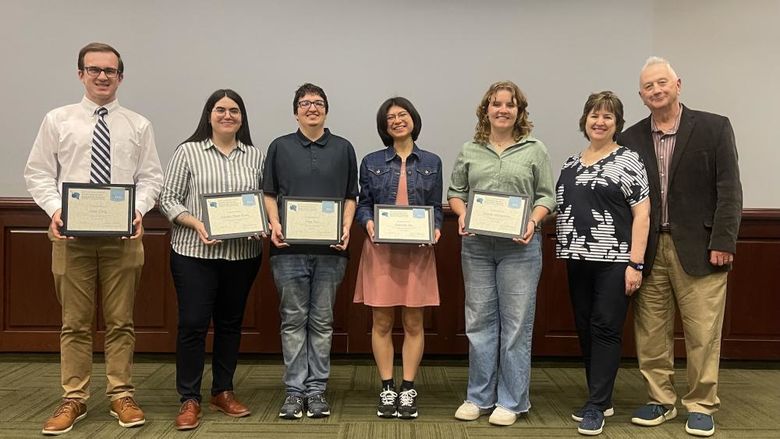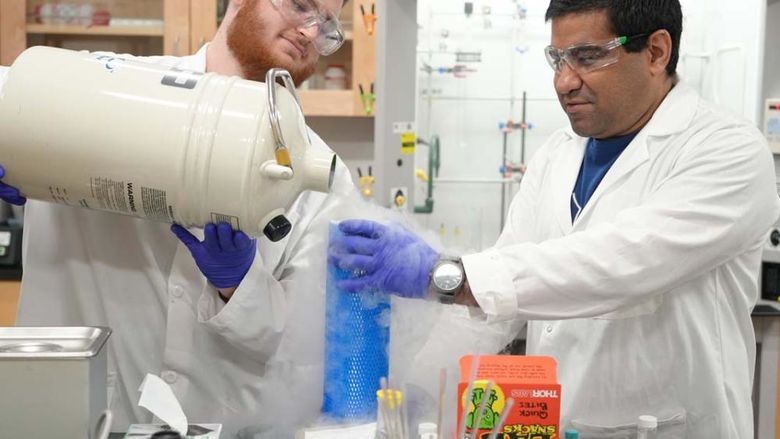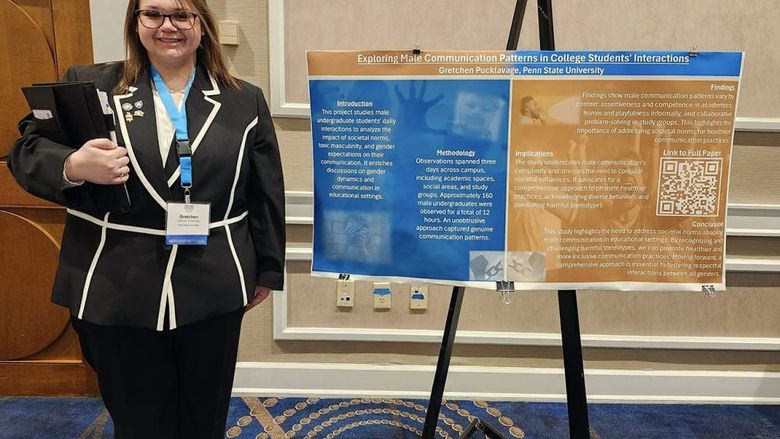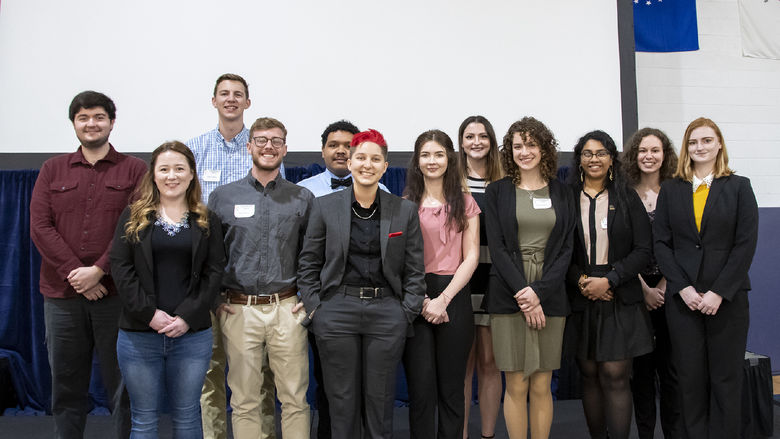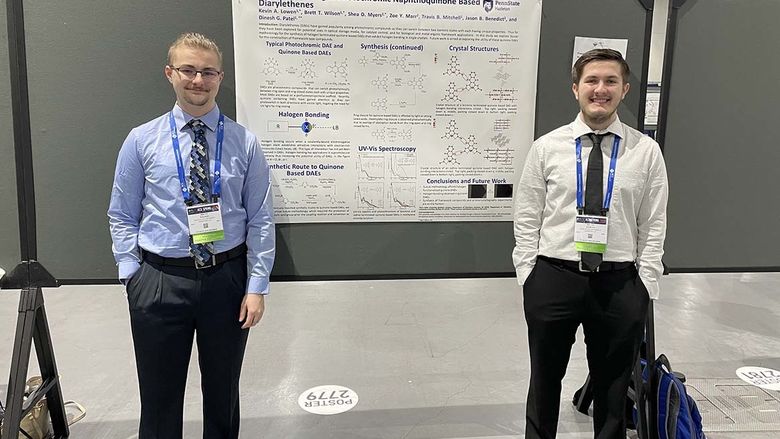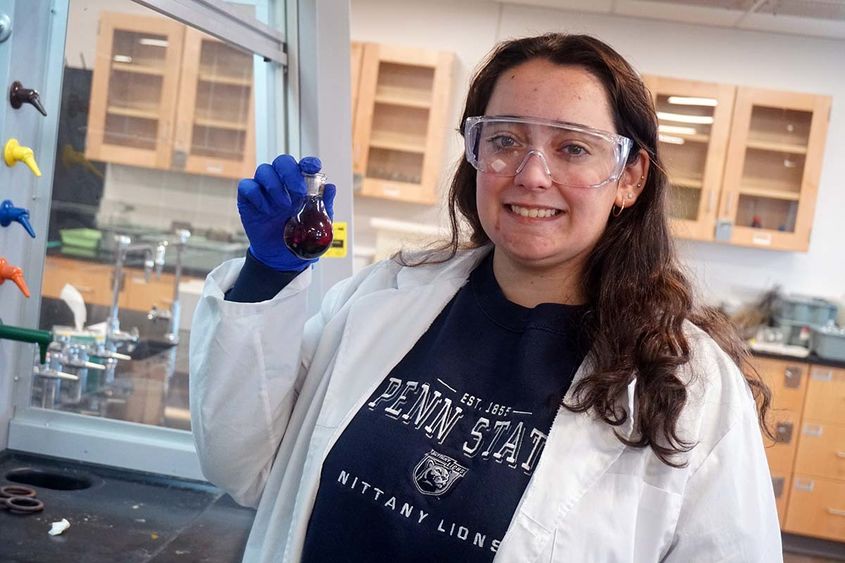
Elisa Tarbell was one of 90 students from 16 Penn State campuses to participate in the College of Engineering’s Multi-Campus Research Experiences for Undergraduates virtual program in 2022, one of several experiences at Penn State Hazleton that are shaping her education in the STEM field.
HAZLETON, Pa. — Unable to conduct a traditional in-person Research Experience for Undergraduates (REU) over the summer, Penn State Hazleton second-year chemical engineering major Elisa Tarbell did the next best thing: She brought her REU project home with her.
Tarbell was one of 90 students from 16 Penn State campuses to participate in the College of Engineering’s Multi-Campus Research Experiences for Undergraduates (MC REU) virtual program in 2022, one of several experiences at Penn State Hazleton that are shaping her education in the STEM field.
The MC REU pairs students with a faculty mentor from their home campus and another based at the University Park campus on research that broadens their education and promotes collaboration.
“It was a really great experience,” Tarbell said. “There were so many things I learned that were beyond what I would have been gaining in the classroom.”
Driven to succeed
Under the guidance of Penn State Hazleton Associate Professor of Engineering and Engineering Program Coordinator Will Yourey and Penn State Greater Allegheny Assistant Professor of Energy Engineering Fernando Soto, Tarbell worked on elements of a solar panel microgrid — a small power grid that can provide efficient, low-cost clean energy — from her home in Bridgewater, New Jersey.
A residential student at Penn State Hazleton, she began her project on campus but was able to bring the equipment home with her over the summer to continue her work. She met virtually each week with Yourey and Soto, but largely worked independently.
“She’s very driven,” Yourey said. “It’s rare you see a student wanting to get involved in undergraduate research so early and with so much enthusiasm. I was really impressed with how well she performed on this self-governed project.”
As part of the REU, Tarbell wrote a research paper, recorded a presentation and created a poster that was voted “Best Poster” by her peers.
“Being recognized like that really felt amazing and made me proud,” she said.
Her undergraduate research experience didn’t stop when the MC REU ended, either. Tarbell has continued to conduct undergraduate research, most recently during the spring 2023 semester with Associate Professor of Chemistry Dan Patel.
The work involves making electron-deficient molecules called dioxazines for potential use in organic electronic devices. Tarbell’s role involves employing chiral solubilizing groups that aid in processability and may help impart interesting solid-state properties on dioxazine molecular systems, Patel said.
“I’ve had Dr. Patel in class each of my four semesters so far and I love how he teaches and explains everything so well,” she said. “Everything we do is like an amplified class.”
Patel said he was most impressed with how Tarbell worked beyond her grade level.
“Even at the second-year level, she's proven adept at quickly learning and understanding the experimental techniques necessary for the synthesis of her target molecules,” Patel said.
Tarbell is also involved outside of the classroom. She serves as co-president of the campus Science and Engineering Club. Among the activities organized by the group is the campus’ annual Cardboard Boat Race, which features student teams racing in boats they constructed from cardboard. The competition is designed to get students interested in STEM by having them design and construct their own boats.
“She’s a great leader of the club,” said Yourey, who serves as its faculty adviser.
Staying power
Tarbell was due to transition to the University Park campus prior to the start of the spring 2023 semester but delayed her decision until the fall because she was enjoying her time at Penn State Hazleton so much, she said.
“I moved my whole schedule around to make it work,” she said.
Tarbell said it was the close-knit campus atmosphere and ability to get to know faculty and staff that influenced her decision to enroll at Penn State Hazleton in the first place.
“I really liked the idea of having smaller classes because my entire junior and senior year of high school was online and I wanted to step back into classroom experiences without those 500-person lectures,” she said. “The relationships I’ve been able to make here just feel so much more personal.”
Before Tarbell transitions to the University Park campus in the fall, she hopes to participate in another REU. Tarbell applied to Virginia Commonwealth University’s Summer Undergraduate Research Program in Pharmaceutical Engineering, where she would work on projects related to the development of complex and novel pharmaceutical products in areas including drug delivery, inhaled therapeutics, continuous manufacturing and nanomaterials in medicine.
